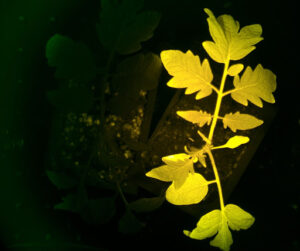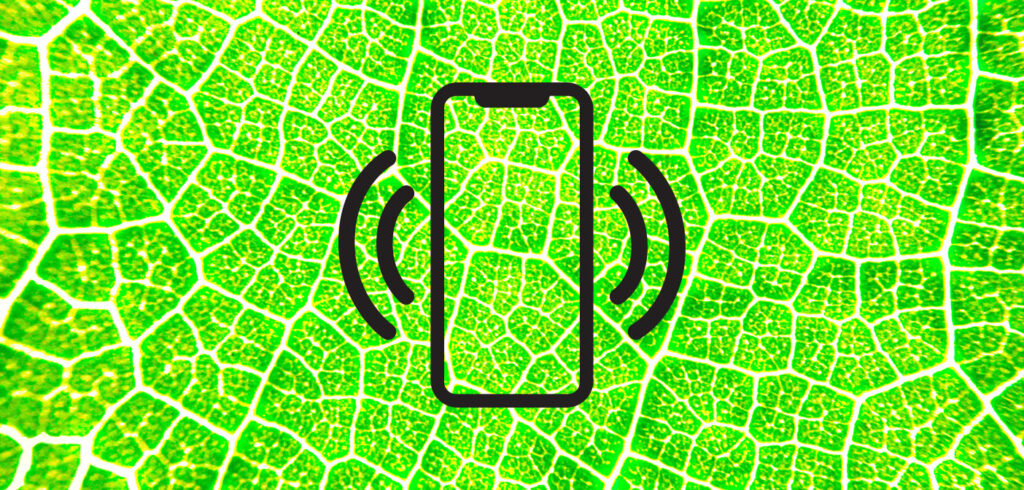What if plants could speak to growers to tell them when they’re stressed? Plants already communicate with each other by secreting chemicals when under attack, triggering the defence mechanisms of their neighbours. The folks at InnerPlant, Inc have developed genetically adapted ‘plant sensors’ which amplify the natural warning chemicals to alert farmers visually when they’re sick. This week InnerPlant has launched its first biosensor – InnerTomato™ a living tomato plant sensor.
Piggy-backing on plant-based signaling

When InnerTomato plants are thirsty, lacking nutrients or under attack by pests or pathogens, their leaves show different colours that can be viewed by optical devices ranging from an iPhone to a satellite or drone. Growers only need a small cluster of InnerTomato living sensors per acre of field or greenhouse to have an effective defence system.
These optical signals from the plants alert growers to potential crop needs weeks before problems arise, this removes the need for the preemptive blanket spraying of expensive chemical fertilizers and pesticides. More timely interventions also make for healthier plants and larger yields with lower chemical traces, increasing profit margins for farmers and boosting consumer health.
“Farms today live on a pesticide treadmill of ever more toxic chemicals that grow big company profits at the expense of a bleak future,” said Shely Aronov, chief executive officer and co-founder of InnerPlant. “Our solution delivers healthy plants that help farmers reduce fertilizer and pesticide use, improve land-use via early detection, and grow healthy produce. InnerTomato is the first of our many upcoming InnerPlant species that will level the playing field for farmers.”

Founded in 2018 by Shely Aronov and Rod Kumimoto, InnerPlant, Inc. is the world’s leading developer of genetically adapted living plant sensors. The company has set its sights on revolutionizing farming by combining biotechnology, Big Data and the Internet of Things (IoT).
In addition to the InnerTomato sensor the company is also applying its plant-based signaling technology to soybeans and grapes with the goal of turning every plant into a living sensor to give farmers easy-to-use tools that boost yields to supply consumers with healthy food while preserving the environment. The company is also particularly interested in using their technology to develop cover-crop biosensors which would be able to provide information to farmers about the levels of nutrients in fields between regular crop sowings, enabling accurate management of NPK and soil acidity.



